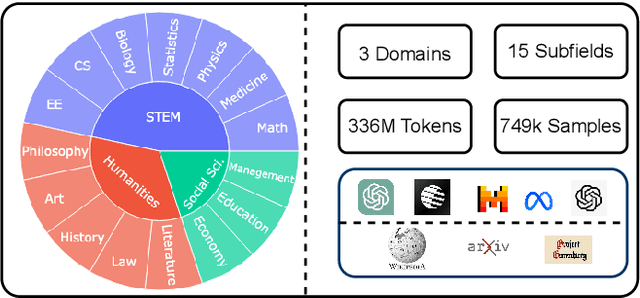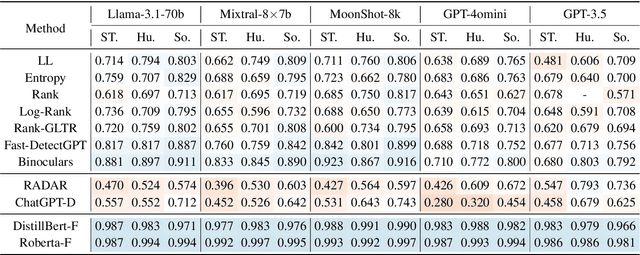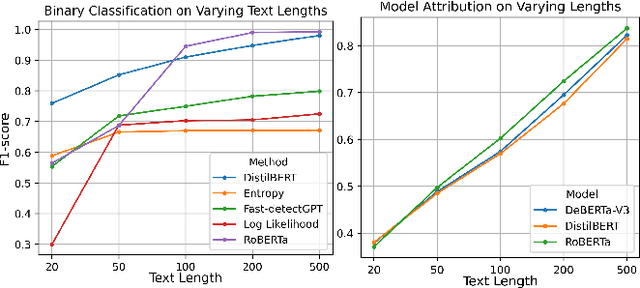On the Generalization Ability of Machine-Generated Text Detectors
Paper and Code
Dec 23, 2024



The rise of large language models (LLMs) has raised concerns about machine-generated text (MGT), including ethical and practical issues like plagiarism and misinformation. Building a robust and highly generalizable MGT detection system has become increasingly important. This work investigates the generalization capabilities of MGT detectors in three aspects: First, we construct MGTAcademic, a large-scale dataset focused on academic writing, featuring human-written texts (HWTs) and MGTs across STEM, Humanities, and Social Sciences, paired with an extensible code framework for efficient benchmarking. Second, we investigate the transferability of detectors across domains and LLMs, leveraging fine-grained datasets to reveal insights into domain transferring and implementing few-shot techniques to improve the performance by roughly 13.2%. Third, we introduce a novel attribution task where models must adapt to new classes over time without (or with very limited) access to prior training data and benchmark detectors. We implement several adapting techniques to improve the performance by roughly 10% and highlight the inherent complexity of the task. Our findings provide insights into the generalization ability of MGT detectors across diverse scenarios and lay the foundation for building robust, adaptive detection systems.
 Add to Chrome
Add to Chrome Add to Firefox
Add to Firefox Add to Edge
Add to Edge